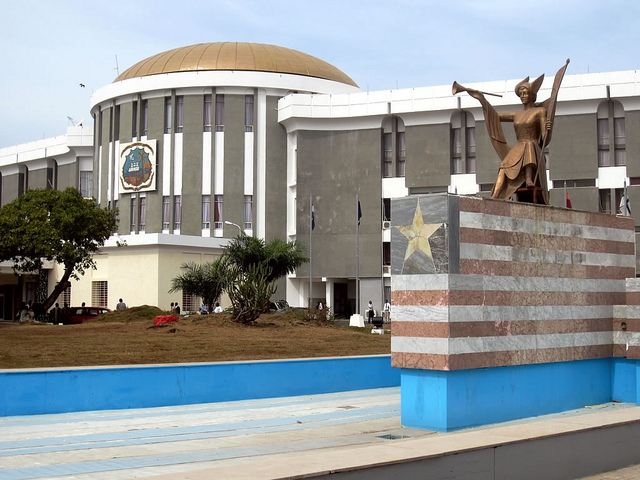MONROVIA, Montserrado – The National Working Group Against Female Genital Mutilation says it is disappointed in members of the legislature for passing the Domestic Violence Bill without including any provision banning FGM.
Members of the Senate on Tuesday, July 18 concurred with their House of Representatives counterpart on the passage of the bill, leaving out the provision to ban the practice of FGM.
It followed appeals from supporters of the bill, including President Ellen Johnson Sirleaf and women’s rights advocates.
In a release issued on Saturday, July 24, the group said while it acknowledges the passage of the act, it takes objection to the action of the lawmakers to omit the ban on the practice that is viewed as dangerous to women’s health.
The group said it is also disappointed in a statement attributed to former Health Minister Peter Coleman who is now a member of the Liberian Senate that FGM is a tradition, and as such must be refined, instead of being banned.
The president had previously told the United Nations General Assembly that she would ensure that the bill is passed before the end of her tenure. She committed herself to goal number five of the new Sustainable Development Goals adopted in September by the United Nations General Assembly, promising to ensure that FGM is banned and to work to increase women’s political participation before her term ends.
At a National Women Conference held last year, the Liberian leader threatened to use her executive power to make the Domestic Violence Act a law if the legislature did not pass it. According to her, the bill was an instrument seeking to protect women against violence and ensure that young girls are free to pursue their education. She said while there were cultural and traditional practices that must be upheld, they can be done without violating the rights of women.
The president’s statements, the working group said, were in line with the constitution’s provision for the preservation, protection, and promotion of Liberian culture.
“It’s barely six months left in the presidency of Liberia and Africa’s first [elected] female president, Madam Ellen Johnson Sirleaf,†the working group said in its statement. “And considering all of the commitments made under her leadership as an advocate for human and women rights to Liberia and the international community at large about ending Female Genital Mutilation in Liberia under her reign, the fight against the practice has experienced a very serious setback.â€
The group of advocates believes that the legislators’ argument for the removal of the ban creates more doubts than answers. They suggested that lawmakers are not only making a mockery of the commitments made to the international community but also, confirms the fact they and other government actors are the prime sponsors of the practice of FGM.
Liberia is one of the only three out of 28 FGM-practicing countries that have not criminalized the practice.
The working group says although the practice might be a cultural heritage, it violates women rights and puts their health at risk.
“By the way, FGM is not solely a Liberian culture, it is a universal danger. If everyone is fighting it around the world, why should Liberia remain insensitive and defiant,†the group wrote.
It is meanwhile calling on Sirleaf, the UN, the U.S. Embassy, and other international partners to prevail on the legislators to consider FGM a matter of human rights violation and health risk and make its practice a criminal offense.
Featured photo courtesy of David Stanley



